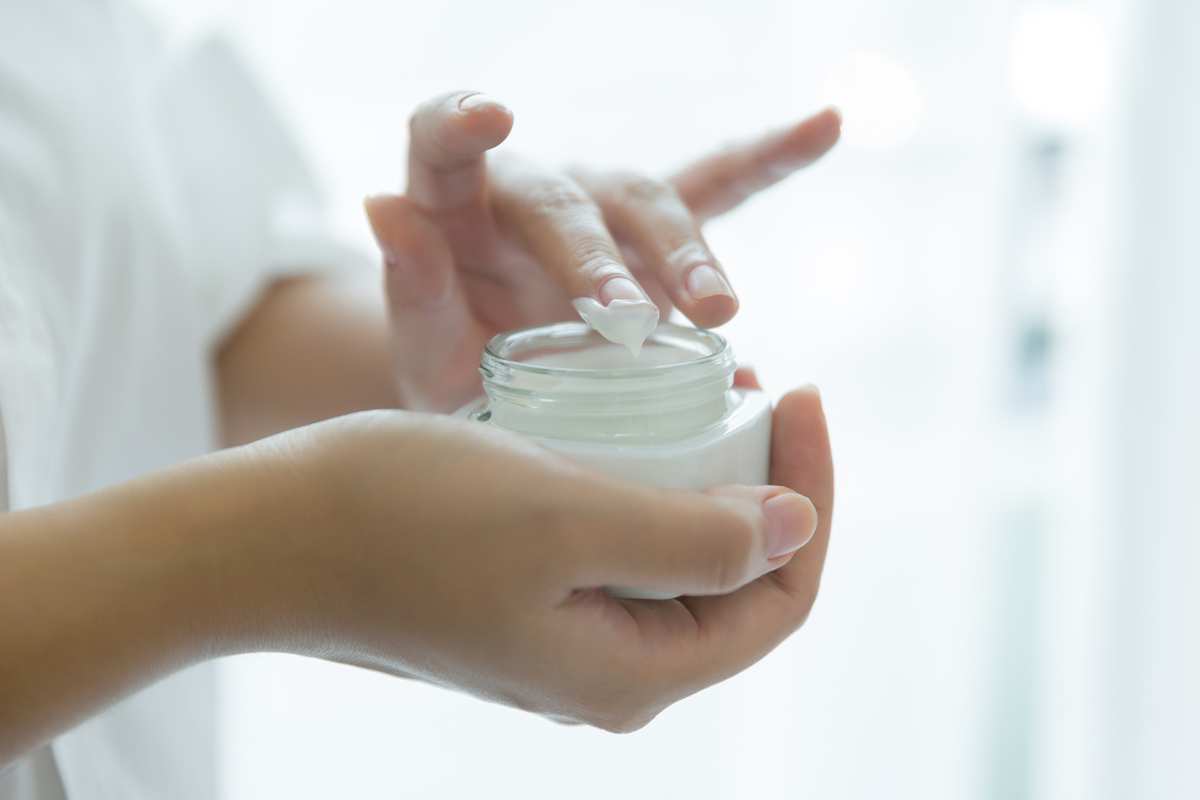Dry skin — medically called xerosis — can result from both complex and simple factors, ranging from medical conditions such as eczema and psoriasis to using overly harsh soaps. Even people who don't suffer from dermatological conditions and who have flawless, smooth skin the rest of the year may, however, find themselves stuck with dry, tight-feeling, flakey, skin during the winter.

Why is dry skin so common during the colder winter months?
Dry skin during the winter is pretty common, and is called winter xerososis. You probably have your own thoughts about why so many people suffer from it. If you deduced that cool — and especially freezing — temperatures combined with low humidity levels and breezes actually wick moisture from the skin, you have found just one contributing factor. Scientists have debated whether it is, in fact, even a significant one, though some note that people living far above the equator in Nordic and other countries are more likely to suffer from dry skin, as well as a combination of skin conditions that get worse in cold weather.
Spending most of your time indoors may play a much larger role. Centrally-heated homes or offices are notoriously low on humidity. If you have ever spent a vacation in a mountain cabin heated with nothing but a few fireplaces, only to return to a centrally-heated home, you'll probably not only have felt rather hot but also noticed your skin turning dry. That is because central heating actively dries the air, and thereby also your skin.
How to prevent winter xerosis: Some tips you can start implementing before winter arrives
Because we all know that prevention is better than cure, we'll first take a look at things you can do to stop dry skin in its tracts before it even makes an appearance. (The good news is that these things will still help you if you already have dry skin.) Though simple, these lifestyle changes may take you some time to adjust to:
- Drink more water. We've all heard the thing about "eight glasses a day", but many people are chronically suffering from low-level dehydration. Research notes that, in hot conditions, you can lose anywhere between a third of a liter and two liters of fluids per hour. If you've got the heating turned up, the fact that it's winter definitely doesn't mean you're not in hot conditions! Just like on a hot summer day, you'll have to drink more water to allow your body to replace the fluids it loses. For adults, that can mean anything from 2.5 liters to three liters a day. We list this as a preventative step that requires some "training", because for many people, drinking enough water takes some serious habit-building.
- Turn the heating down. Many people have their heating up way too high. Try making a commitment to maintaining a room temperature of 20 °Celsius, or °68 Fahrenheit. You will lose fewer fluids, and your skin will not dry out as much.
- Get a humidifier. Dry air equals dry skin. The ideal humidity level in a living space will be between 30 and 50 percent. If your air is dry, getting a humidifier will work wonders for your skin.
OK. These tips turned out not to be "hacks" at all, but merely some common sense. Either way, they can go a long way toward preventing dry skin in winter!
I'm already suffering from dry winter skin! What now?
If you're already in the tick of nasty winter xerosis and aren't already implementing the steps above, try that. In addition, some of these measures can come to the rescue and help you achieve smooth and moisturized skin once again:
- Yes, face creams help. For the rest of your body, lotions do, too, and for the lips, there are lip balsams. This is because they create a protective layer on your skin that seals in moisture with the help of fatty substances, as well as helping to protect you from the elements (such as harsh breezes). Using moisturizers prevents further damage while allowing your dry skin to heal. Moisturizer with eucalyptus extract was found to be especially useful in treating dry skin in winter.
- Don't touch your face. In this post-2020 world, we've all heard this plenty of times. Constantly touching and picking at your skin doesn't just increase your risk of a viral or bacterial infection though; it also contributes to drying your skin out.
- Stay away from alcohol. It dehydrates your body and your skin. Nuff said.
- Try to skip long baths and have shorter showers at moderate temperatures instead.
- Stay away from facial cleansers that contain alcohol and antibacterial components, and opt for a mild hypoallergenic cleanser.
- Just because it plays such an important role, we'll say it again — drink enough water!!!
Together, these steps will help your dry winter skin recover. You may notice a difference even within a few days.


Your thoughts on this